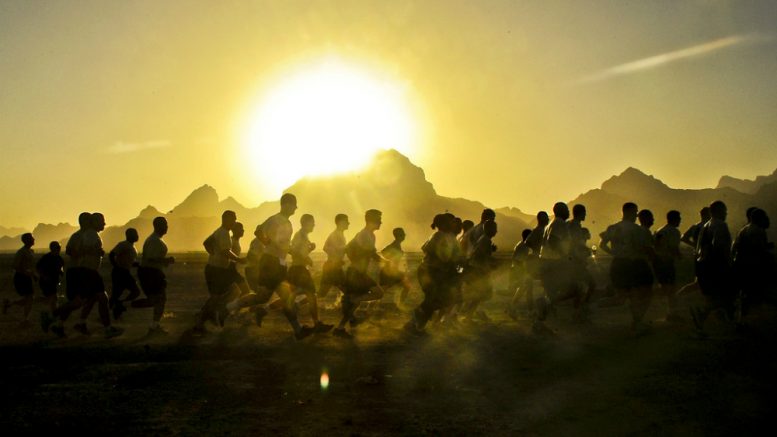An important debate (though not necessarily a new one) has been brought to the forefront by two recent articles. In the first, Maj. John Spencer and Dr. Lionel Beehner argue that declining physical fitness in our nation is adversely—and dangerously—affecting our military readiness, and in turn, our national security. This is not a new argument; the authors echo a case made more than fifty years ago by John F. Kennedy just prior to his inauguration as president. In a subsequent response article, Maj. Jahara Matisek disagrees. He concludes that despite obesity rates that continue to grow in America, we have more than enough physically fit potential recruits in the country, and that the real problem is a chronically underperforming educational system that risks America being left without the cognitive fitness necessary to win the types of wars the United States will most likely find itself fighting in the future. In this article Nick LoRusso agrees wholeheartedly that an intellectually fit society is critical to our military’s future success on the ever-changing battlefield. However, in presenting that argument, Matisek pushes the importance of physical fitness to the periphery, and implicitly understates the vital role physical fitness will continue to play in securing victory in our nation’s future wars. He opines that “[f]or the United States to be successful in the battle field of the future we absolutely need to invest in our human capital. Increased emphasis on STEM, social sciences, and psychology is important to the missions of our military. The ability to “grow our own” skilled workers and intellectual brainpower, which Matisek suggests we’re struggling to do, is critical. We cannot however, favor the development of these brilliant minds over that of their bodies. A machine functions when all of its components are maintained and in sync, and it must be “put in the red” often enough to ensure that when adverse conditions develop—and they will—the machine can continue to perform.”
MWI – Maintain the Standards: Why Physical Fitness Will Always Matter in War – 14 February 2017

